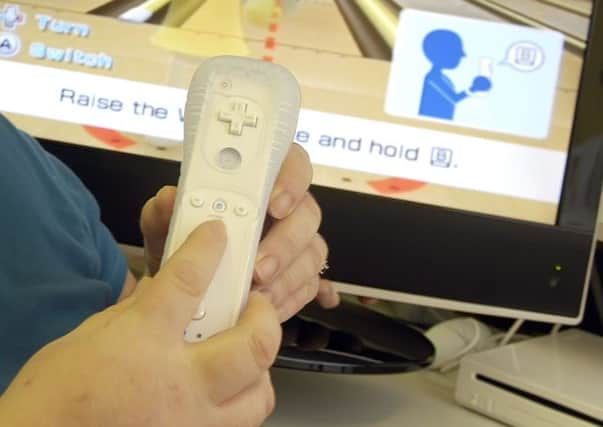Computer games benefit kids, new research shows


They discovered that youngsters who indulged in a little game-playing were associated with being better adjusted than those who had never played or those who did so for three hours or more each day.
The Oxford University study suggests the influence on children of games consoles such as Nintendo Wii and Sony Playstation is “very small” when compared with more “enduring” factors such as schooling and wealth.
Advertisement
Hide AdAdvertisement
Hide AdThe research found no positive or negative effects for young people who played “moderately” – ie, between one to three hours a day. However, the study in the journal Paediatrics suggested video games’ influence is very small compared to whether the child is from a functioning family, their school relationships, and whether they are materially deprived.
The study is the first to examine both the positive and negative effects of gaming using a sample of 5,000 young people.
Participants aged 10-15 years were asked how much time they typically spent on console-based or computer-based games. They also answered questions about how satisfied they were with their lives, their levels of hyperactivity and inattention; empathy; and how they got on with their peers.
Researchers found three in four British youngsters played video games on a daily basis, and those who spent more than half their daily free time gaming were not as well adjusted.
They say this could be due to missing out on other activities and possibly exposing themselves to inappropriate content designed for adults.
However, when compared to non-players and those who played a lot, those who played video games for less than an hour – estimated to be less than one-third of their daily free time – had the highest levels of sociability and were most likely to be satisfied in their lives.
They also appeared to have fewer friendship and emotional problems, and reported less hyperactivity than others.
Study author Dr Andrew Przybylski, of the Oxford Internet Institute, said: “These results support recent laboratory-based experiments that have identified the downsides to playing electronic games.
Advertisement
Hide AdAdvertisement
Hide Ad“However, high levels of video game-playing appear to be only weakly linked to children’s behavioural problems in the real world.
“Likewise, the small, positive effects we observed for low levels of play on electronic games do not support the idea that video games on their own can help children develop in an increasingly digital world.
“Some of the positive effects identified in past gaming research were mirrored in these data, but the effects were quite small, suggesting that any benefits may be limited to a narrow range of action games.”
He added: “Further research needs to be carried out. It will also be important to identify how social environments such as family, peers and the community shape how gaming experiences influence young people.”
Previous research recommended time limits, but this study argued that such guidelines had little scientific basis.